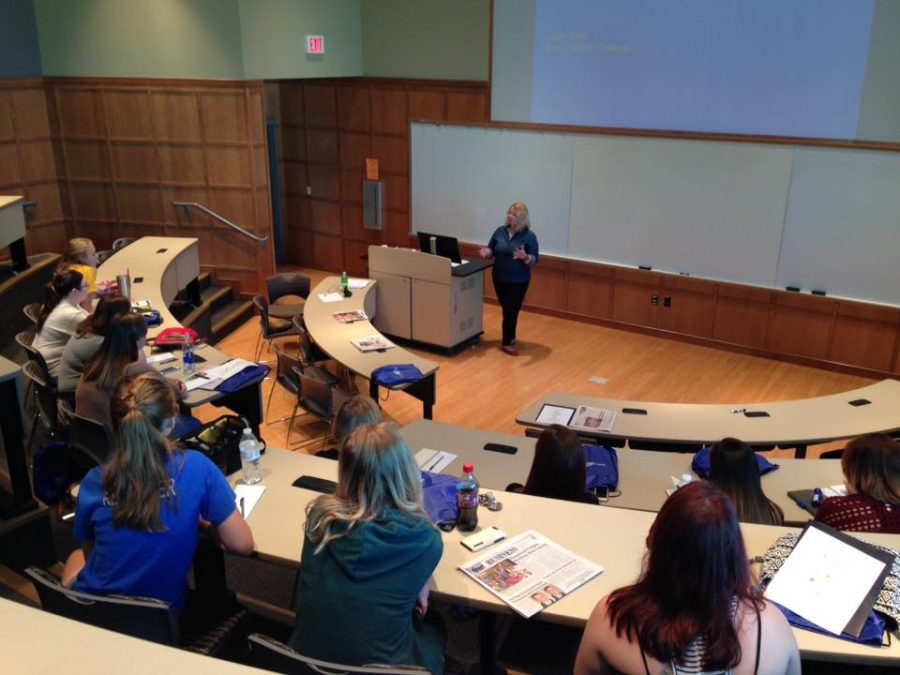If You Build It, They Will Come: Take a Localized Approach to Reach More Journalism Students in Your Area
As more and more schools face budget cuts, there are many scholastic journalism programs housed in school districts that can no longer afford to have students travel out of state for a national conference. Some districts have such tight budgetary restrictions that even taking a weekday off for one closer to home is out of the question. Weekend regional workshops can be the answer.
Sept. 24, the Missouri Interscholastic Press Association, along with SchoolJournalism, partnered with East Central College to present such a workshop.
Pre-registration via an online form was required for each student. Students attended on his or her own without the need for an adviser or chaperone in attendance. This was cost effective in that journalism advisers did not need to pay for a bus, substitute teacher, or registration fees.
Thanks to the generosity of ECC, students in attendance were treated to a free day of learning that included lunch, a swag bag, and attendance prizes. ECC also provided the lecture hall, audio-visual needs, and two of their journalism students to assist with the day.
“I’ve been to many workshops around the nation, but to know that we have such a great resource at a local community college is amazing,” MIPA Vice President Michelle Turner said. “They in no way tried to nickel and dime students or teachers, and they went so far as to feed us all lunch. It was refreshing to be shown such hospitality.”
Beyond being more affordable for young journalists and their advisers, there were additional benefits.
“At larger conventions, it can be a little overwhelming with so many students in attendance,” Lydia Juengling, co-editor of the Washingtonian Yearbook, said. “I liked that there weren’t too many people there.”
Students who attended heard from seven speakers who came from many different areas within media. Area instructors, a local newspaper photographer, and a radio personality from St. Louis were on hand. Topics ranging from “Putting the Credibility Back into Journalism” to the “Day in the Life of a Photojournalist” were explored.
“The speakers were all very good. They had insightful presentations,” Juengling said. “I personally thought that Hemmy (Jennifer Hemmer) from 93.7 the Bull was engaging. She encouraged us to try something new and take risks, even if we don’t know where we want to go with our careers.”
Juengling wasn’t the only one who found the event beneficial. Both collegiate journalism student volunteers found the event “inspiring” and said so to their ECC Journalism and English instructor, Leigh Kolb, at the end of the day.
“The Journalism Summit was an incredible experience to bring together students and professionals to speak about being a journalist and media professional in the 21st century, as well as the importance of being critical media consumers,” Kolb said. “It was empowering to hear how many opportunities are available for students who want to pursue all forms of journalism.”
Turner feels that this is something other states and regions could easily recreate for students in their area by simply reaching out and building partnerships with local media professionals and colleges.
“I would encourage other state organizations and teachers to reach out within their own community to make their own version of this. This is a great way to reach students who are interested in journalism, but may not attend a school capable of funding costly travel-related expenses,” Turner said.
If you would like to plan such an event and would like some tips or advice, feel free to contact us for ideas on how to create your own Journalism Summit.



